How High-Performance Website Development & SEO Drive Business Success in 2025


The Importance of Website Performance & SEO in 2025
In 2025, the landscape of online business will be heavily influenced by the convergence of website performance and search engine optimization (SEO). As companies navigate an increasingly competitive digital marketplace, having a website that not only looks visually appealing but also functions optimally is essential for success. A high-performance website is characterized by fast loading times, mobile responsiveness, and robust security features, all of which are critical factors in providing a positive user experience. Studies consistently show that users have little patience for slow-loading pages, which can lead to increased bounce rates and lost revenue opportunities.
Moreover, effective SEO practices are intertwined with website performance. Search engines are becoming increasingly sophisticated, favoring sites that meet a variety of quality metrics, including speed, mobile usability, and overall user engagement. In 2025, businesses must prioritize SEO strategies that align with these performance indicators to rank higher in search results. This includes employing tactics such as optimizing image sizes, minimizing HTTP requests, and utilizing content delivery networks to ensure faster loading times across geographical locations.
Additionally, security has emerged as a paramount concern, especially with the growth of e-commerce and the necessity for data protection. A website that ensures strict compliance with modern security standards not only fosters consumer trust but also positively influences its search engine ranking. Effective website performance combined with strategic SEO will not only enhance visibility and organic traffic but will also increase conversion rates by retaining visitors and encouraging them to take desired actions. As businesses look to thrive in 2025 and beyond, the synergy between website performance and SEO is undoubtedly a critical element of their digital strategy.
How SEO Drives Organic Traffic and Boosts Revenue
Search Engine Optimization (SEO) plays a crucial role in enhancing a website's potential to attract organic traffic, which is vital for driving business growth and increasing revenue. By implementing effective SEO strategies, businesses can significantly improve their visibility on search engines, thereby attracting a larger audience. The primary aim of SEO is to optimize the content and structure of a website, ensuring that it aligns with search engine algorithms, ultimately enabling potential customers to find the business more easily when searching for relevant products or services.
One of the key components of successful SEO is keyword research, which involves identifying the terms and phrases that potential customers are using when they look for information online. By strategically incorporating these keywords into website content, businesses can improve their rankings on search engine results pages (SERPs). Higher rankings correlate not only with increased visibility but also with increased traffic volumes. As more visitors arrive at the site, the probability of converting these visitors into paying customers rises, leading to revenue growth.
Additionally, a well-executed SEO strategy encompasses various aspects, including technical SEO, on-page optimization, and link-building efforts. Technical SEO focuses on enhancing the website's backend, ensuring that it is fast, secure, and easily navigable. On-page optimization involves improving individual page content to better meet user intent, while link-building fosters the development of a strong online reputation by generating high-quality inbound links. The synergistic effect of these strategies significantly enhances a website's performance, ultimately leading to more organic traffic and revenue generation.
In conclusion, investing in robust SEO practices is essential for businesses aiming to succeed in the competitive digital environment of 2025. By understanding the importance of SEO in attracting organic traffic, organizations can maximize their online presence and drive business success.
Latest Trends in Website Design & Performance Optimization
As we move steadily into 2025, the ever-evolving digital landscape necessitates a close examination of current trends in website design and performance optimization. One of the most significant trends is the emphasis on responsive design, which ensures that websites provide an optimal viewing experience across a wide range of devices, from desktops to smartphones. This design approach is crucial as it allows businesses to cater to users who access websites via multiple platforms, enhancing overall user experience and engagement.
Another pivotal trend is mobile-first indexing, a strategy implemented by search engines that prioritizes mobile versions of content for indexing and ranking. In an era where a significant portion of web traffic comes from mobile devices, optimizing websites for mobile use is essential for improving search visibility and attracting potential customers. This practice aligns with the broader trend of prioritizing mobile user experience, recognizing that mobile users often expect features such as quick load times, easy navigation, and visually appealing layouts.
In addition to responsive design and mobile-first indexing, the focus on performance metrics, specifically faster load times, has reached new heights. According to research, users are likely to abandon a website if it takes longer than three seconds to load. This statistic highlights the critical importance of performance optimization techniques, such as utilizing Content Delivery Networks (CDNs) and employing lazy loading to speed up site responsiveness. Furthermore, innovative tools and technologies have emerged to enhance website performance, including advanced caching mechanisms and performance monitoring solutions that allow developers to constantly refine and improve speed. By integrating these cutting-edge practices, businesses can significantly elevate user satisfaction and engagement, propelling their success in the competitive online market of 2025.
The Impact of AI-Driven SEO Tools on Search Rankings
The digital landscape is rapidly evolving, and the emergence of AI-driven SEO tools has significantly transformed how businesses approach search engine optimization. These advanced tools harness the power of artificial intelligence to analyze large volumes of data, providing insights that were previously difficult to gather manually. By streamlining the SEO process, AI tools enable businesses to improve their search rankings more effectively.
One of the primary advantages of AI-driven SEO tools is their ability to quickly adapt to changes in search engine algorithms. As algorithms evolve, traditional methods of SEO may become less effective, making it essential for businesses to stay ahead by utilizing AI technologies. For instance, these tools can analyze user behavior patterns and keyword trends, allowing companies to refine their strategies accordingly. This data-driven approach enhances decision-making, helping businesses optimize their content and better target their audiences.
Several organizations have successfully implemented AI-driven SEO tools with impressive results. For example, a well-known e-commerce platform adopted an AI-powered tool to analyze its website traffic and product performance. Through predictive analytics, the platform identified high-performing keywords and optimized its product descriptions, leading to a notable increase in organic search traffic. The integration of AI not only streamlined their SEO efforts but also provided them with a competitive edge in an oversaturated market.
Moreover, AI-driven SEO tools facilitate continuous improvement. Companies are now able to monitor their SEO performance comprehensively and make adjustments based on real-time data. As a result, businesses can implement adaptive strategies that resonate with their target audience while consistently improving their search rankings. This competitive advantage positioned by AI technology underscores the importance of leveraging these innovations for long-term business success in the ever-evolving digital marketplace.
